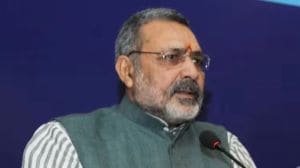Nasscom wants ESOP taxed as perks, not as fringe benefits
NASSCOM, the apex association of software companies, has said stock options should be taxed as a perquisite in the hands of the employee rather than as a fringe benefit tax at the employer’s end.

NASSCOM, the apex association of software companies, has said stock options should be taxed as a perquisite in the hands of the employee rather than as a fringe benefit tax (FBT) at the employer’s end.
In its post-Budget representation to the finance ministry, Nasscom has also recommended that the Esop taxation proposal be prospective, i.e., stock options granted to employees only after March 1, 2007, should be considered for the purposes of taxation.
According to Section 115WA of the Income-Tax Act, the fringe benefit tax shall be payable at the rate of 30 per cent of the value of fringe benefits. With the surcharge and education cess, the proposed rate of tax is 33.99 per cent.
Nasscom has proposed that the tax should be levied at a maximum rate of 10 per cent on sales, considering the cash flow availability with the optionee. This would provide a level playing field for Indian companies by ensuring equity in taxation, it said.
On the issue of minimum alternate tax (MAT), to be levied at 11.33 per cent on book profits computed in accordance with Section 115JA, Nasscom has suggested that the levy of MAT on Section 10A/ 10B profits be deferred unless a decision to extend the tax holiday beyond 2009 is also taken simultaneously.
In the Finance Bill, 2007, the definition of venture capital undertakings (VCUs) is proposed to be restricted to those undertakings that are engaged only in the specified businesses. This means that VCUs engaged in the business of ITeS would not qualify for exemption under Section 10(23FB).
According to Nasscom, as venture capital funds have already staked large investments in IteS, it would be better to have a “negative list” to take care of any concerns of the government, rather than a “positive list” for venture funding.





- 01
- 02
- 03
- 04
- 05


























